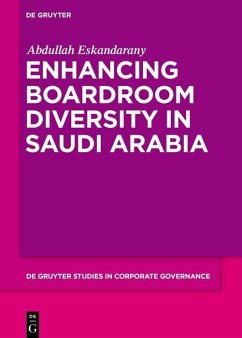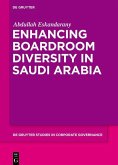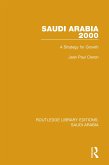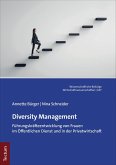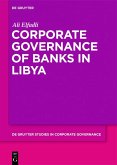The book will provide a clear picture of boardroom diversity in Saudi Arabia. This will contribute to knowledge through understanding board diversity and exploring whether there have been changes in the boardroom due to social structure shifts, and the extent of resistance. It will benefit both accounting and governance academics as well as the broader practitioner community. Furthermore, it will be important for those looking at social change and the role of the Saudi national plan Vision 2030 which provides a strategic framework to reduce the country's dependence on oil, diversify its economy and develop its public sector.
- The first book to investigate boardroom diversity in Saudi Arabia
- Captures the change of Saudis boardroom in six demographic types of diversity
- Looks into the impact of social settings in Saudi culture by highlighting the Vision of 2030
- Provides a comprehensive review of Saudi Arabia's most recent corporate governance codes
Abdullah Eskandarany is an Assistant Professor of Accounting at the Business College of the University of Jeddah, Saudi Arabia. As an assistant professor, he has been actively involved in teaching and administrative duties at both the departmental and faculty level. Abdullah holds a PhD in Management from Accounting and Financial Management department at University of Sheffield Management School, an MSc in Accounting and Finance from Bangor University, UK, and an MBA in Accounting from Avila University, USA. Abdullah's research interests include extinction accounting, Islamic tax (zakat), and corporate governance, with a specific concentration on the corporate board and its diversity. Abdullah has presented research on boardroom diversity at many conferences and workshops.
Dieser Download kann aus rechtlichen Gründen nur mit Rechnungsadresse in A, B, BG, CY, CZ, D, DK, EW, E, FIN, F, GR, HR, H, IRL, I, LT, L, LR, M, NL, PL, P, R, S, SLO, SK ausgeliefert werden.

